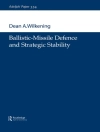When President George W. Bush launched an invasion of Iraq in March of 2003, he did so without the explicit approval of the Security Council. His father’s administration, by contrast, carefully funneled statecraft through the United Nations and achieved Council authorization for the U.S.-led Gulf War in 1991. The history of American policy toward Iraq displays considerable variation in the extent to which policies were conducted through the UN and other international organizations.In Channels of Power, Alexander Thompson surveys U.S. policy toward Iraq, starting with the Gulf War, continuing through the interwar years of sanctions and coercive disarmament, and concluding with the 2003 invasion and its long aftermath. He offers a framework for understanding why powerful states often work through international organizations when conducting coercive policies-and why they sometimes choose instead to work alone or with ad hoc coalitions. The conventional wisdom holds that because having legitimacy for their actions is important for normative reasons, states seek multilateral approval.Channels of Power offers a rationalist alternative to these standard legitimation arguments, one based on the notion of strategic information transmission: When state actions are endorsed by an independent organization, this sends politically crucial information to the world community, both leaders and their publics, and results in greater international support.
Cuprins
Preface Chapter 1. The Power of International Organizations
IOs and Information Transmission
Statecraft and IOs
The United Nations and the Legitimation of Force
Case Selection and Outline Chapter 2. Coercion, Institutions, and Information
The Politics and Costs of Coercion
Institutions and Information
Coercion through IOs
Two Pathways of Information Transmission
Institutional Variation and the Security Council
Alternative Arguments
Observable Implications and Research Design Chapter 3. The Security Council in the Gulf War, 1990–1991
Background and Events
Choosing (How) to Intervene
Signaling Intentions to State Leaders
Transmitting Policy Information to Foreign Publics
Assessing the Role of Legitimacy Chapter 4. Coercive Disarmament: The Interwar Years
Channeling Power between the Wars
The Postwar Honeymoon
Cracks in the Coalition
The Decline of UN Inspections
Desert Fox and Its Aftermath
The Evolution of U.S. Coercive Strategy
Reviving Inspections: A Divided Council Chapter 5. The Second Iraq War: Down the UN Path, 2002–2003
From September 11 to Iraq
Appealing to the General Assembly
Back to the Council: Resolution 1441
Renewed Inspections
A Second Resolution?
Explaining U.S. Motivations Chapter 6. The Second Iraq War: Bypassing the Security Council
Was It a ‘Unilateral’ Policy?
The Costs of Working through the UN
Sensitivity to IO Constraints
Regional Options: Constrained Forum Shopping
International Reactions to Iraq 2003
The International Political Costs of the War Chapter 7. Conclusion: How the Security Council Matters
Multilateralism in U.S. Foreign Policy
Beyond the Superpower
The Security Council as a Political InstitutionAppendix: Selected Security Council ResolutionsBibliography
Index
Despre autor
Alexander Thompson is Associate Professor of Political Science at The Ohio State University.












